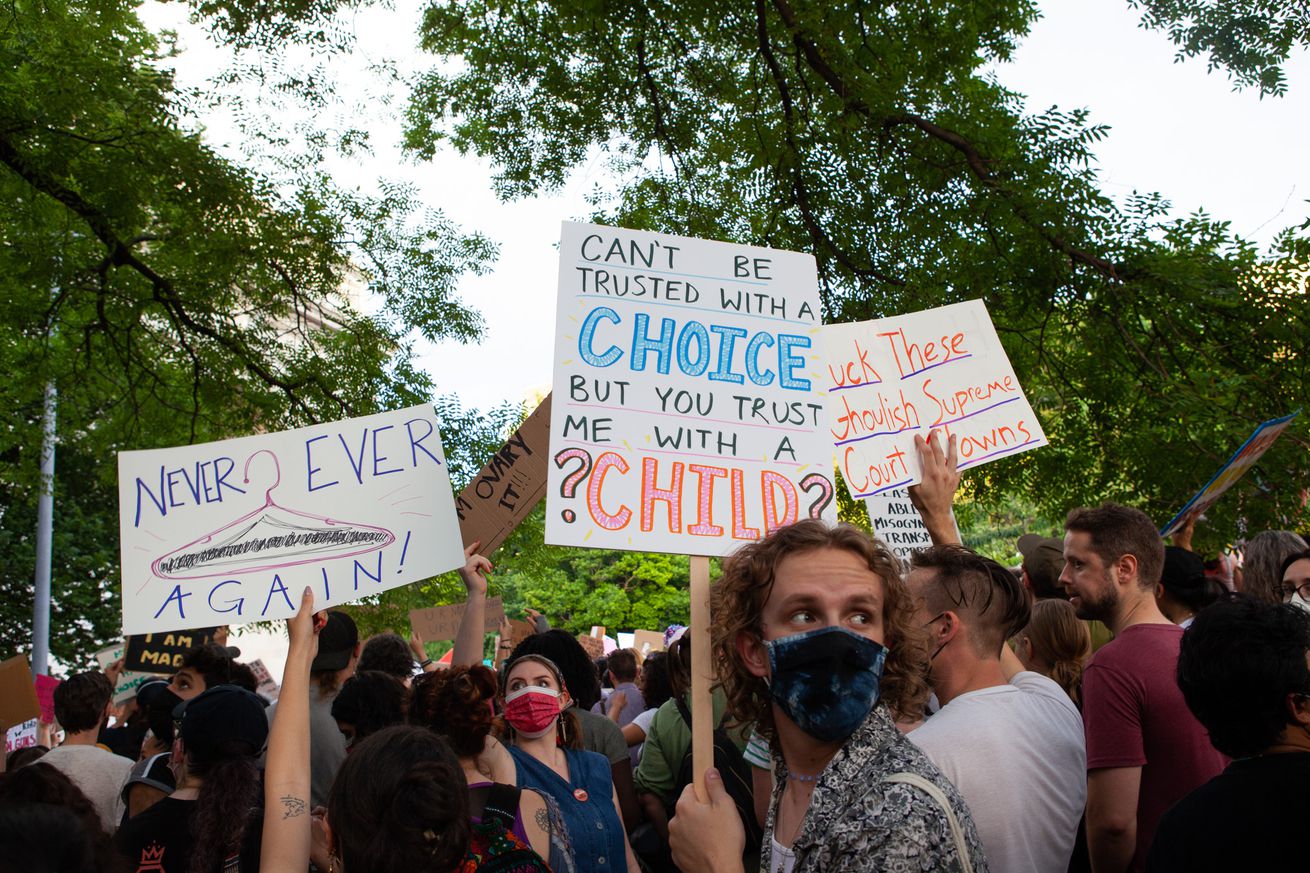In reaction to the announcement that the Supreme Court struck down Roe v. Wade, protestors assembled in Washington Square Park and then marched north to Union Square on June 24th, 2022, in New York City. | Photo by Amelia Holowaty Krales / The Verge
The end of Roe v. Wade is leaving web platforms struggling to handle moderation — and data safety — questions around newly instituted abortion bans.
For years, web platforms have faced relatively little backlash for pledging to remove posts that violate US law, even if there’s debate over whether specific content meets that standard. Policies that “match the laws of the country” — Elon Musk’s initial description of his plans for Twitter — are typically code for very permissive moderation in the US, where the First Amendment has historically protected a huge swath of content. The 2018 FOSTA-SESTA carveout, a rare exception, targeted the marginalized community of sex workers and used the justification that it was fighting the rightfully…


